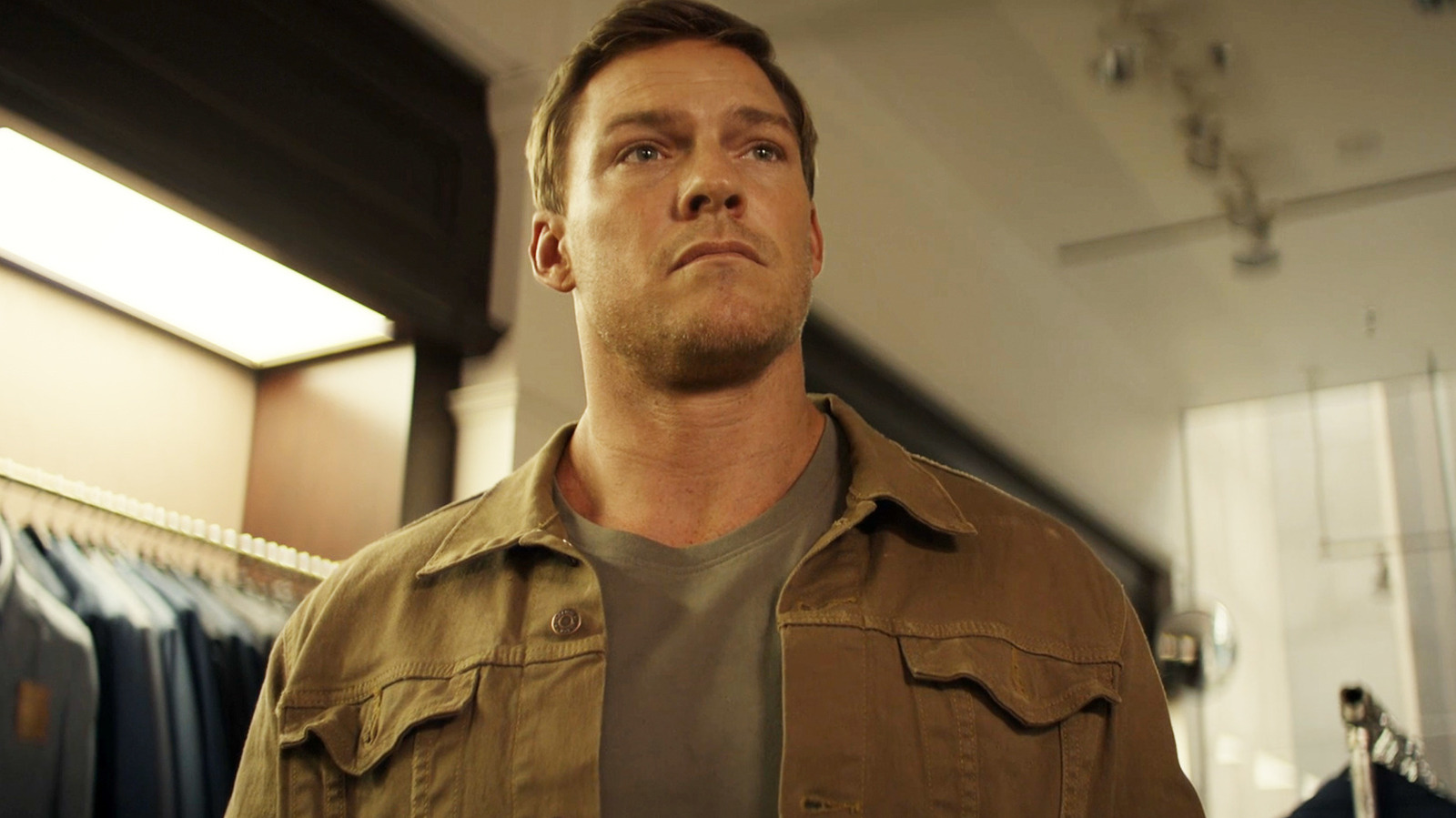
by admin | Jun 29, 2025 | TV & Beyond Articles
season 3 of “Reacher” breaking a ratings record. But prior to this, the actor had been hustling for almost two decades, and there are plenty of great Alan Ritchson roles that aren’t Jack Reacher.
One of those came with “Above the Shadows,” a 2019 supernatural romance written and directed by Claudia Myers, in which Ritchson plays a down-and-out former mixed martial arts fighter who finds his way back to prominence courtesy of an invisible woman. Doesn’t sound great, does it? But “Above the Shadows” was actually received quite well, is currently streaming on Prime Video, and contains an overlooked Ritchson performance that proved he had what it took to fulfill all the requirements of the Jack Reacher role.
There was a hint of Reacher in Alan Ritchson’s Above the Shadows performance
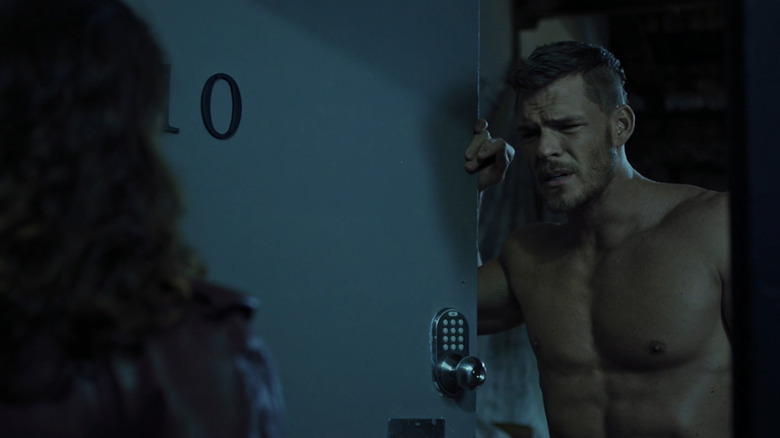
Gravitas Ventures
“Above the Shadows” stars Olivia Thirlby, who you might remember as Judge Cassandra Anderson in the beloved Karl Urban action outing “Dredd” (2012). Thirlby plays Holly, an invisible woman. But this isn’t the cool, superpower kind of invisible. Rather, it’s a metaphor for the isolation that follows grief. Holly’s mother died some years prior, prompting her daughter to withdraw from life to the point that nobody, even her own family, could see her anymore, which I could have sworn was pretty much the plot of that invisible girl “Buffy” episode. Still, Holly has at least learned how to use her invisibility to her advantage, working as a paparazzo to take candid photos of celebrities in situations where regular photographers would never be able to gain access.
Alan Ritchson plays Shayne Blackwell, and in case you were worried he wasn’t going to punch anyone in this supernatural-tinged meditation on grief, don’t worry. Shayne is a former MMA fighter who is somehow the only person who can see Holly. That’s just as well because it turns out Holly took a compromising photo of Shayne that resulted in the breakdown of his relationship with his former partner, Juliana (Megan Fox). Now, Holly has a chance to redeem herself and begins helping Shayne, supporting his training and ultimate return to the world of fighting, which means we get to see a lot of pre-“Reacher” punching from the man in question.
On the other hand, Ritchson had been showcasing his combat prowess prior to the arrival of “Above the Shadows.” In 2019, he was playing Hank Hall, aka Hawk, in “Titans,” the comic book adaptation series that debuted on the subscription video-on-demand (SVOD) DC Universe, before transitioning to HBO Max for its third and fourth seasons. With “Titans,” Ritchson had already proved his toughman bona fides and sense of humor, both of which have always been integral to the Jack Reacher character. While “Above the Shadows” also allowed him to showcase his tough-guy persona, it also allowed him to reveal more of his dramatic capabilities, with Ritchson adding a human touch to his portrayal of Shayne that would come in handy for “Reacher.”
Above the Shadows gave us sensitive Alan Ritchson
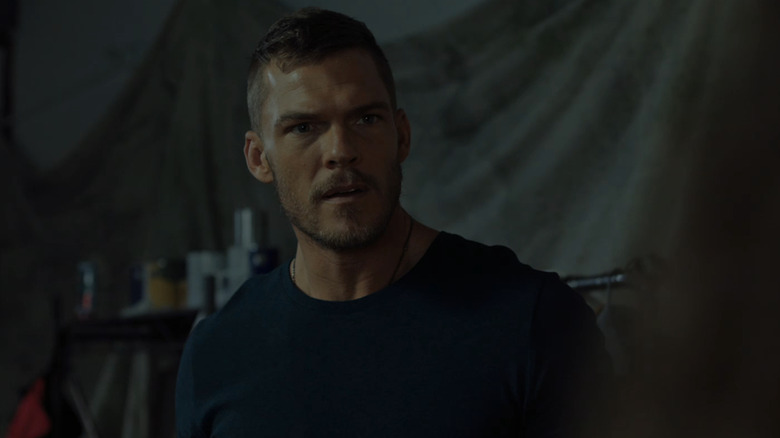
Gravitas Ventures
“Above the Shadows” didn’t cause much of a stir upon its debut. It premiered at the Brooklyn Film Festival on May 31, 2019, before being given a video-on-demand release alongside a limited theatrical run. The movie made just $1,594, so that must really have been a “select” few theaters. Clearly, the real focus was on the video-on-demand release, though there’s no way to know how well “Above the Shadows” fared in terms of audience share there. However, Rotten Tomatoes suggests it might have done okay since critics and audiences seemed to respond quite well.
The film currently has a 70% critic score based on 10 reviews, alongside a 64% audience score. Courtney Howard of Variety praised the “magical-realist fairy tale” describing it as “imaginative and intelligent in its ideas,” even if she also criticized the movie’s sentimentality. Noel Murray of the Los Angeles Times also praised the film, noting Olivia Thirlby’s performance in particular, but also wasn’t too impressed with the way in which “the more Holly comes into view, the blander her character becomes.” Marina Antunes of AWFJ.org, meanwhile, praised Alan Ritchson for doing “quite well here with some emotional moments.”
Ritchson has since demonstrated yet more of his sensitive side in “Reacher,” which requires a surprising amount of nuance from its leading man for a show that’s essentially about a large man hitting smaller men. He’s also shown off his ability to handle “emotional moments” in “Ordinary Angels,” an overlooked 2024 drama for which Ritchson had to quickly shed his “Reacher” weight. No doubt we’ll see more of that as his career continues to flourish in the wake of his Jack Reacher performance.
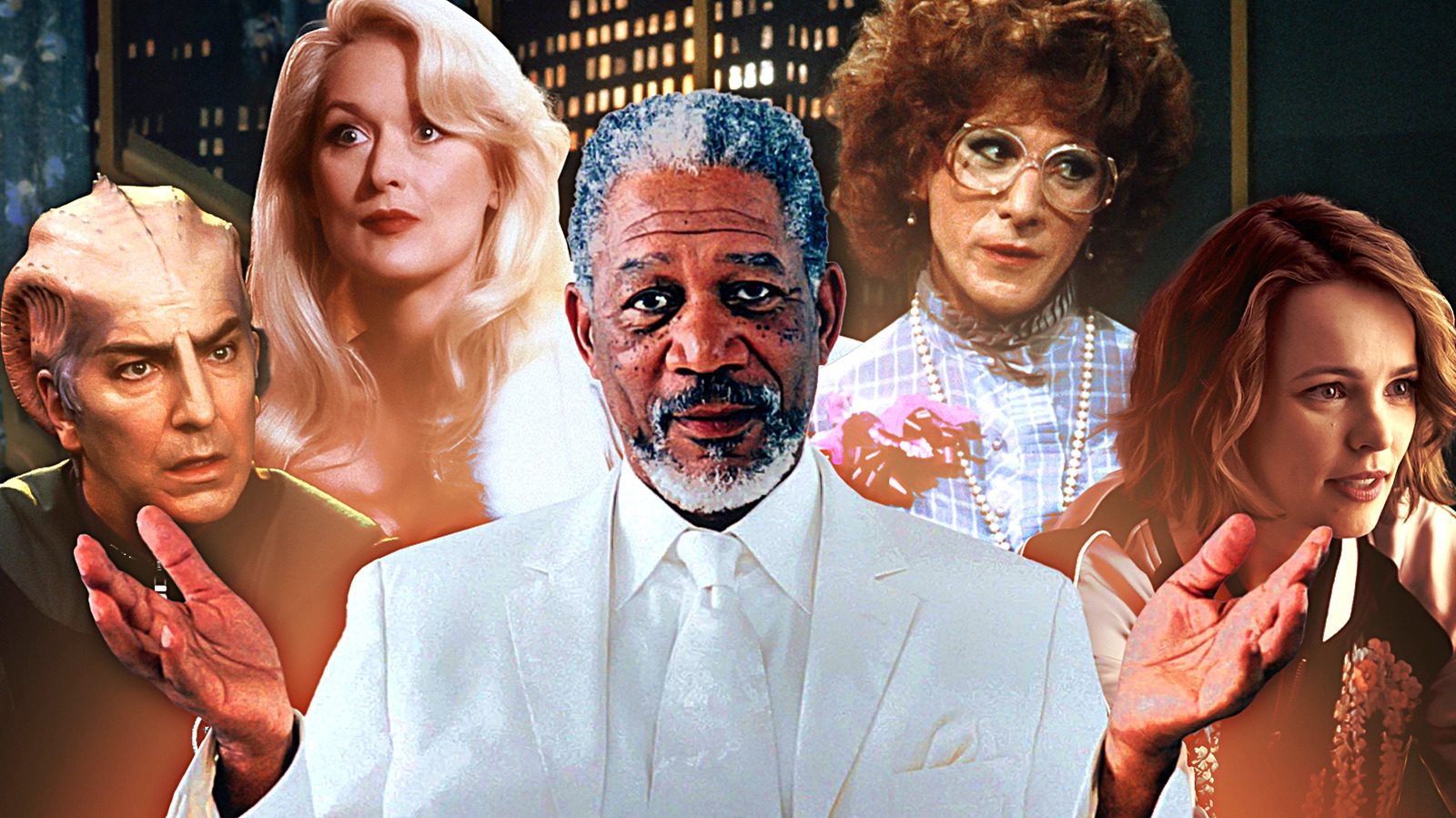
by admin | Jun 29, 2025 | TV & Beyond Articles
a “good guy” actor can play a terrifying villain, or a character actor could shine in a blockbuster. However, to anyone familiar with the craft, it’s no surprise that some of the best performances in cinema can come from an actor proving they contain multitudes.
People particularly like to commend comedians who excel at drama, like Adam Sandler in “Uncut Gems” or Seth Rogen in “Steve Jobs.” But what about when a dramatic actor takes on a comedy? In some ways, this can be an even harder lift. After all, dying is easy. Comedy is hard. We’ve seen certain actors attempt to be funny alongside seasoned comedians, and, well, the results can be a mixed bag. But these performances we’ve assembled here prove that, with the right material and the right approach, certain “serious” actors can prove to be seriously funny.
Here are 12 great dramatic actors who excelled in comedic roles.
Robert De Niro (Midnight Run)
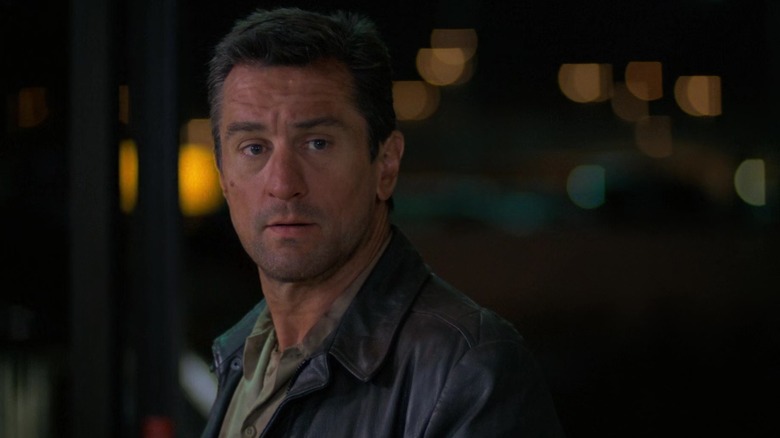
Universal Pictures
Robert De Niro is arguably the best actor ever, but there was a time when he was not considered a movie star. Sure, he had notched a number of acclaimed roles under his belt, from “The Godfather Part II” to “Raging Bull,” but these weren’t box office gold. It wasn’t until he decided to do an all-out comedy that he found his first major mainstream success: “Midnight Run,” an odd couple action comedy that sees De Niro as Jack Walsh, a bounty hunter hired to retrieve disgraced accountant Jonathan Mardukas (Charles Grodin) and bring him back to Los Angeles to repay a bailout.
In truth, there’s little that Robert De Niro is doing in “Midnight Run” that he wasn’t already famous for. He’s got that smarmy confidence, the unbridled rage, even the more vulnerable edges. However, De Niro wisely retools his cinematic persona with a sillier, fussier energy, especially when juxtaposed to Grodin’s buttoned-up straight man routine. Walsh’s intentions may be to intimidate his captee, but when pressed by Mardukas’ attempts at seeing through to Walsh’s good nature, he simply doubles down. The ridiculous back and forth makes for a unique kind of comedic pairing that is often imitated but rarely duplicated, especially when considering De Niro played with audience expectations at the time.
“Midnight Run” set the stage for De Niro’s now established run of comedies, from “Analyze This” to “Meet The Parents.”
Ralph Fiennes (The Grand Budapest Hotel)
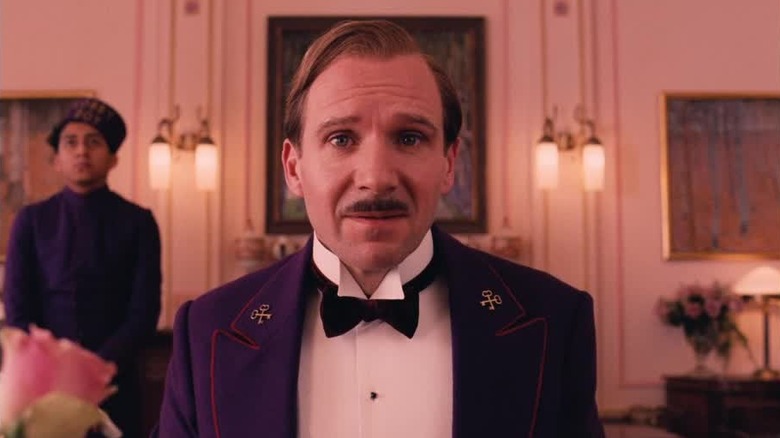
Fox Searchlight Pictures
Whether you recognize him as Voldemort from the “Harry Potter” films or dramatic work like “Schindler’s List” and “The English Patient,” Ralph Fiennes is the classic case of an English thespian turned Hollywood star. However, it was his sharp, gut-busting work in Wes Anderson’s “The Grand Budapest Hotel” that solidified him as a truly malleable talent, the kind of adept actor who could nail punchlines in “Hail, Caesar!” and “The Menu,” as well as monologues in dramas like “Conclave” and unexpected Paramount+ hit “The Return.” Cinephiles around the world have since embraced Fiennes as a deadpan comedy icon and cinema is all the better for it.
Fiennes is Gustave H., a world-renowned concierge at a famous mountainside resort who is framed for murder. He teams up with his protege, Zero (Tony Revolori), to clear his name in a thrilling adventure that is now regarded as one of Wes Anderson’s greatest films. We would argue part of the alchemy that gained the film its superlative standing is Fiennes himself, whom Anderson had never worked with previously. Despite his novel inclusion, he fits like a glove within the director’s singular tone and aesthetic. Just like Anderson uses perfectly framed cinematography to juxtapose ridiculous scenarios, so too does Fiennes bounce posh wit and proper poise against Gustave’s sexual messiness and complete disregard for authority — other than his own, of course.
Jeff Daniels (Dumb and Dumber)
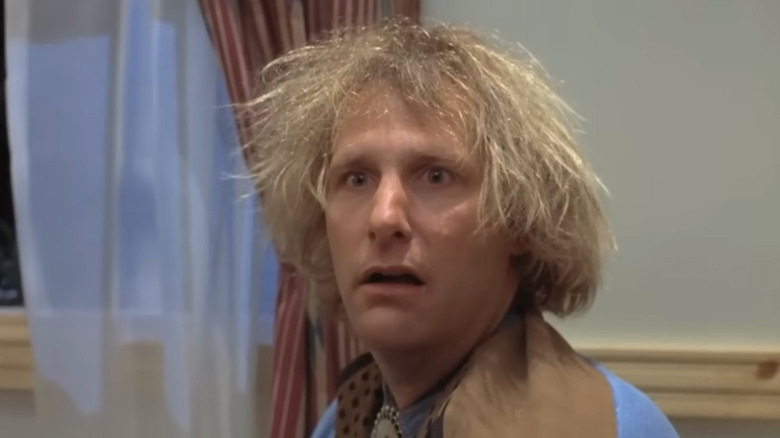
New Line Cinema
“‘This will be the end of your career.'” This is what Jeff Daniels’ agents told him when he insisted he play Harry Dunne in “Dumb and Dumber” (via The Hollywood Reporter). Sure enough, things didn’t pan out that way. Despite two Golden Globe nominations under his belt, nothing boosted Daniels’ career more than the Farrelly Brothers comedy, in which he and Jim Carrey star as two dim-witted besties who travel across the country to return a lovely lady’s briefcase. But little do they know that it’s filled with ransom money for criminals hot on their tail.
Daniels had starred in a few comedies before “Dumb and Dumber,” but none of them saw the actor truly let loose. Well, when you work alongside Jim freakin’ Carrey, you don’t have a choice. Daniels was one of the few actors who could keep up with Carrey during screen tests, in part because he had the sensibility to let Carrey go off while playing his similarly silly but more kindhearted tagalong. This dynamic is what makes Harry and Lloyd feel like genuine friends; they care about each other, but they still have their differences. Carrey fought for Daniels to be cast and, though he may not have been paid as much as Carrey, he became just as big of a household name. Sometimes, you need to be a great actor before you can be a great comedian.
Rachel McAdams (Game Night)
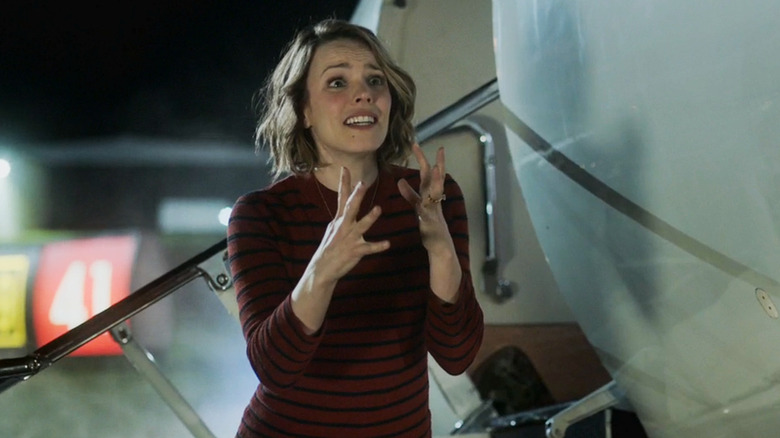
Warner Bros. Pictures
Sometimes, an actor is so good in a comedy that it makes you wish they did more comedy … even when they’ve done plenty of it! Rachel McAdams has never been a capital-C comedian, but she has done plenty of comedy: “Mean Girls,” “The Family Stone,” and even “Eurovision Song Contest: The Story of Fire Saga” as recently as 2020. It’s a solid resume, yet McAdams’ best comedic performance was a real revelation in 2018’s “Game Night.”
McAdams co-stars as Annie, a competitive gamer (board games, trivia, etc.) alongside her husband, Max (Jason Bateman), whose skills are put to the test in a whole new way when a murder mystery party turns into a real kidnapping. Initially, Max and Annie are none the wiser, so their cocky showmanship winds up getting them into deep trouble with real mobsters. Once they realize the truth, they have no choice but to finish the job. It’s the type of fish-out-of-water role we’ve never really seen McAdams play, which makes it all the more exciting to witness her blossom into a brazen comic lead. Watching her likable but otherwise white-bread personality persevere amidst real danger makes for several standout moments, from her attempting to remove a bullet in Max’s arm to her mistaking an informant “mole” for a literal facial mole.
Ryan Gosling (The Nice Guys)
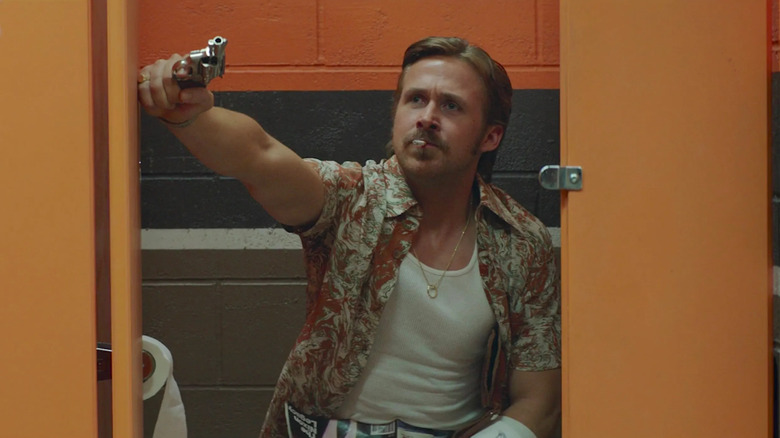
Warner Bros. Pictures
Ryan Gosling has long been a versatile actor, breaking through with dramas like “The Notebook” and “Blue Valentine” alongside comedies like “Lars and the Real Girl” and “Crazy, Stupid, Love.” Despite this, Gosling was typically more lauded for his dramatic work than his comedic work, that is until Shane Black’s “The Nice Guys” proved Gosling was a legitimate comic talent. Opposite hardened fixer Jackson Healy (Russell Crowe, who also gives a similarly uncharacteristic comedic performance), Gosling’s Holland March is a private investigator who begins looking into the death of an amateur adult film actress before being thrown into a much larger conspiracy.
Most of Gosling’s comedic work prior to “Nice Guys” came down to looking fine and spitting wisecracks. In this film, he’s a lovable loser out of his depth, an uncoordinated private eye who has a knack for screwing things up and taking a beating. Yet, like a cute puppy dog, you can’t help but love him. Gosling is working in multiple modes here — everyman action hero, single dad, pratfall comic — and he nails all of them simultaneously, especially the physical comedy. His chiseled bod is somehow far lankier and bumbling in motion. In many ways, the actor’s goofy, pitiable work laid the groundwork for his Oscar-nominated work as Ken in “Barbie,” but we’re still over here waiting for a “Nice Guys” sequel!
Alan Rickman (Galaxy Quest)
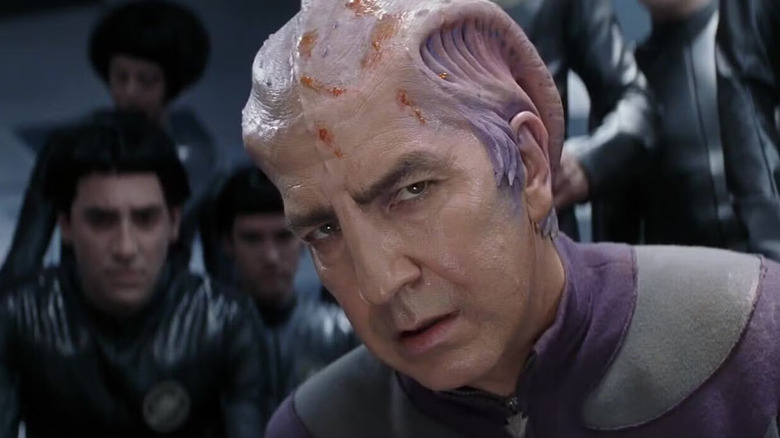
DreamWorks Pictures
In the 90s, Alan Rickman was best-known for villains like Hans Gruber in “Die Hard” and the Sheriff of Nottingham in “Robin Hood: Prince of Thieves.” Snape had yet to grace the silver screen, yet Rickman was still known for gravitas. Imagine our surprise to see Rickman’s willingness to send it all up as disgraced thespian Alexander Dane, a.k.a. Dr. Lazarus on the fictional hit sci-fi series “Galaxy Quest,” whose eyerolls at his own ridiculous catchphrase — “By Grabthar’s Hammer, by the Suns Of Warvan, you shall be avenged!” — could move mountains.
It’s hard to overstate the sheer lightning in a bottle that is Rickman in “Galaxy Quest.” It’s one thing to play a parody of Spock, which is funny on its own. But Dean Parisot’s film also portrays the dedicated “Star Trek” fandom so positively that it was voted the seventh best film of the franchise by fans in 2013 (via The Hollywood Reporter).
However, it’s the metatextual incorporation of Rickman’s reputation as a skilled dramatic actor that makes the performance something special. Dane’s disappointment at being pigeonholed with prosthetics is every actor’s nightmare. But when he is forced to lead the Thermians, he realizes the meaning behind his work. The actor in him can’t help but be moved. Suddenly, this biting farce has morphed into something as sincere as anything in Rickman’s career prior.
Meryl Streep (Death Becomes Her)
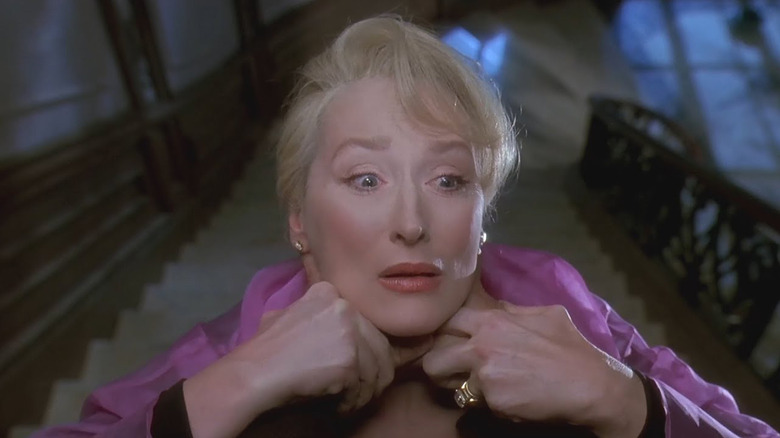
Universal Pictures
There are few actors who would be conventional picks for a film as unconventional as “Death Becomes Her,” Robert Zemeckis’ fantastical farce that literally rips a hole through women’s beauty standards. Wisely, Zemeckis cast the film in line with its zaniness and brought in three actors — Goldie Hawn, Meryl Streep, and Bruce Willis — wildly against type. Most people are quick to point to Willis as the film’s wild card, and yeah, he’s practically unrecognizable. However, Willis did have some experience in comedy with “Moonlighting.” It’s arguably Streep that takes the biggest leap, for she was best known for dramas like “Kramer vs. Kramer,” “Out of Africa,” and “Sophie’s Choice.”
Needless to say, she stepped up to the plate as Madeline Ashton, a fading stage actress whose rivalry with a gorgeous novelist (Hawn) has them both experimenting with a potion of eternal youth that comes with some nasty side effects. Though Streep had done a few quaint comedies throughout her career, none of them required her to be as bawdy as Ashton. Her extreme vanity lends perfectly to the film’s outrageous physical humor, which Streep embraces despite the difficulty she experienced behind the scenes. The actress’ ability to nail ruthless stubbornness would eventually pave the way for her most beloved role: Miranda Priestley in “The Devil Wears Prada,” which transformed Streep into a new kind of icon.
Jennifer Lawrence (No Hard Feelings)
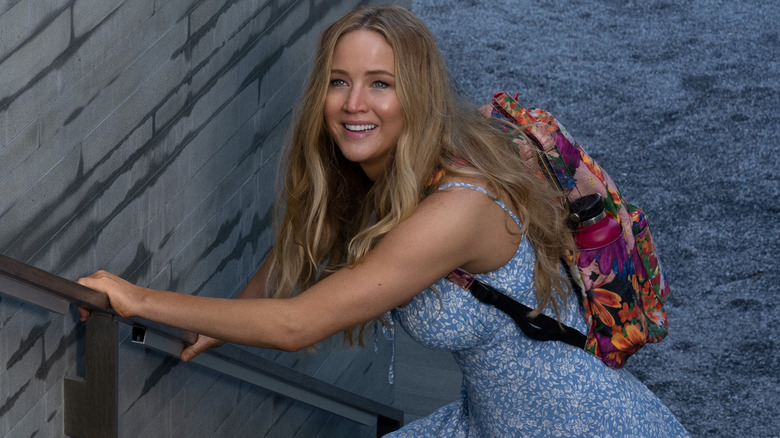
Sony Pictures Releasing
To call “No Hard Feelings” the breakout comedic performance for Academy Award winner Jennifer Lawrence feels like a bit of a misnomer. After all, the beloved Kentucky-born actress has played roles spanning the comedy spectrum, from tragicomic characters in “Silver Linings Playbook” and “American Hustle” to the more deadpan satire of “Don’t Look Up.” However, “No Hard Feelings” represented a unique kind of comedic performance from Lawrence, specifically one of an unfiltered mess in a shaggy raunch-com. Lawrence stars as Maddie, an aimless bartender and gig worker who is secretly hired by two parents to date their sheltered young son, Percy (Andrew Barth Feldman), before he goes off to college. Naturally, hijinks ensue.
Lawrence had established a name for herself in tackling emotionally complex characters in everything from genre films to Oscar bait, yet her public persona was anything but serious. From laugh-out-loud interviews to red carpet fails, Lawrence knows how to take a joke in stride, so it only makes sense she can effortlessly slip into a character who is forced to utterly humiliate themself. The actress had never done a sex comedy before “No Hard Feelings,” yet Lawrence is fully committed to each and every bit, including a fight scene in which she beats up a group of teenagers on the beach entirely in the nude. For that alone, Lawrence renewed our faith in the R-rated comedy.
Dustin Hoffman (Tootsie)
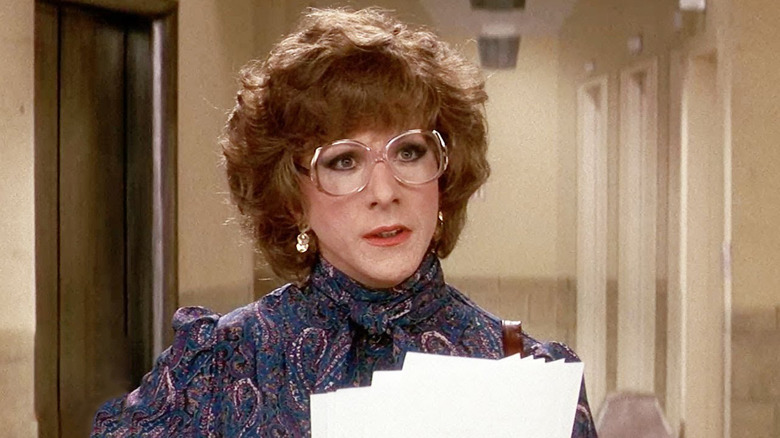
By 1982, Dustin Hoffman had starred in several compelling dramas: “The Graduate,” “Midnight Cowboy,” “All The President’s Men,” “Marathon Man,” and “Kramer vs. Kramer,” just to name a few. By all accounts, he was considered one of the greatest dramatic actors of his generation. Imagine, then, that same actor coming out with a project like “Tootsie,” in which he plays a reviled actor forced to crossdress as a woman in order to get a job. It was a total flip for Hoffman, both literally and figuratively, yet it won him his third BAFTA, his third Golden Globe, and his fifth Oscar nomination.
“Tootsie” is one of cinema’s many complicated contradictions. There’s no denying that it’s a product of its time, an inherently transmisogynist farce that makes countless antiquated jokes at the expense of vulnerable communities. On the other hand, it’s also a hilarious comedy that takes industry misogyny to task, even if it perpetuates part of it. The film’s star shares a similar paradox. Much of “Tootsie” and its problematic nature came from Hoffman himself, who was a primary creative force during the film’s development and production. Despite this, we can’t help but be floored by the actor’s transformation: the physicality, the vocal code-switching, the hair and makeup. It makes sense that the actor gets visibly emotional when discussing his process, as he fully embodies Dorothy Michaels in every aspect. It’s a remarkable performance, even with strings attached.
Sandra Oh (Quiz Lady)
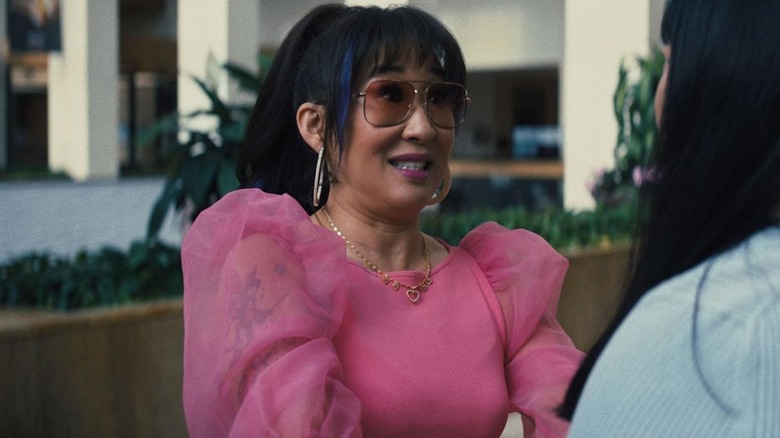
Hulu
You might have missed “Quiz Lady,” a refreshingly mid-budget comedy that premiered at the 2022 Toronto International Film Festival before being buried on Hulu. If you did, then you also missed out on Sandra Oh giving the rare comedic performance in a leading role. She plays Jenny, an immature, broke actress who convinces her straight-edge younger sister, Anne (Awkwafina), to compete on her favorite quiz show so they can pay off their mother’s gambling debt. The two wind up on a whirlwind trip to Los Angeles, where the two estranged sisters reconnect and reconcile their difficult childhoods and long-standing differences.
In any other film, Oh would play the straight woman while Awkwafina would be the quirky one. However, director Jessica Yu and casting directors Nicole Abellera Hallman and Jeanne McCarthy wisely chose to cast both women against type, making for a unique comic duo to headline an otherwise standard story. Awkwafina is solid as Anne, however Oh steals the show as Jenny; the character’s hyperactive messiness and total lack of filter are charming and cringey in equal measure thanks to Oh’s strong comic timing. Though best known for otherwise calm and thoughtful roles on shows like “Grey’s Anatomy” and “Killing Eve,” this uniquely light-hearted performance will give you a better appreciation for Oh’s range and is one of the many things that makes “Quiz Lady” the rare streaming movie to be worth your time.
Marilyn Monroe (Gentlemen Prefer Blondes)
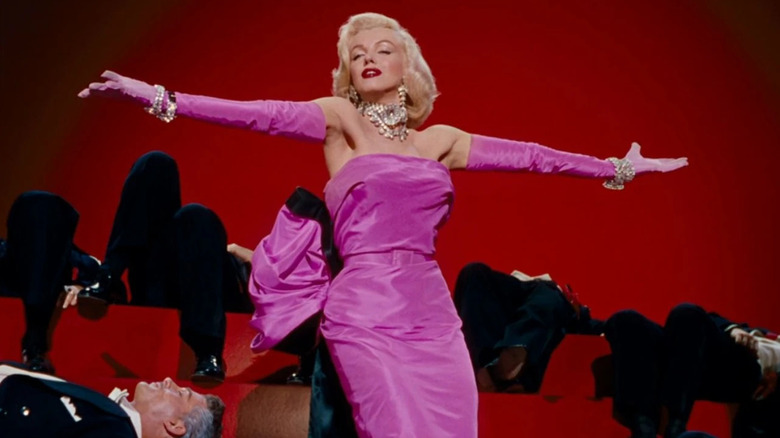
20th Century Studios
Time for a throwback! After all, actors have been toeing the line between comedy and drama since studios first struck soil. Most people regard Marilyn Monroe as merely a sex symbol, but she was a very talented silver screen actress during the ’50s and ’60s. Her career began with bit parts and cameos in comedies and dramas, most notably “All About Eve.” However, her stunning allure was on full display with a starring role in “Niagara,” a rare Technicolor noir that made Hollywood’s heart skip a beat. That said, Monroe’s striking beauty came first and the actual performance came second to most reviewers and, let’s face it, most audiences.
Any doubts that Monroe could pull her weight as an actress were all but assuaged with “Gentlemen Prefer Blondes,” a musical comedy in which she and Jane Russell play best friends and showgirls aboard a cruise to France. Monroe’s Lorelai intends to marry a wealthy man when they dock, however a private detective has been paid to spy on her in case she gets frisky. Lorelai may be a quintessential “dumb blonde” of cinema, but Monroe certainly wasn’t one. “Gentlemen Prefer Blondes” called for a complete reinvention of Monroe, from her nailing big musical numbers to her boosting a hypnotic radiance with assured confidence, no matter how supposedly vain it might be. Her culminating musical number is the iconic “Diamonds are a Girl’s Best Friend,” in which she embraces her love of luxury with crooning convinction.
Morgan Freeman (Bruce Almighty)
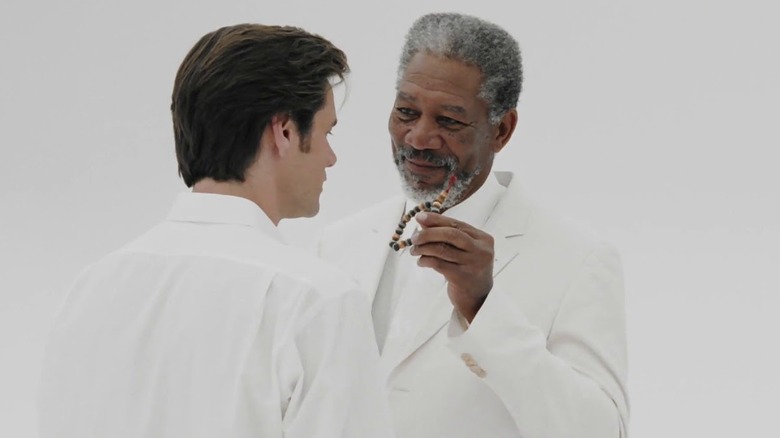
Universal Pictures
“Bruce, I am god.” Never have four words more cemented an actor’s status in pop culture than Morgan Freeman’s subtly sweeping declaration in “Bruce Almighty.” The ridiculously underrated comedy follows Bruce (Jim Carrey), a news reporter who is quick to blame everybody but himself, including the ol’ man upstairs. So, when said man shows up and offers him His powers for a week, he winds up getting a taste of his own medicine. It’s the kind of high-concept, mid-budget comedy that allows for unconventional casting choices, such as Freeman, to shine in entirely singular roles. Freeman was so iconic as God that he became the culture’s voice of god, though that wasn’t by accident.
It’s hard to comedically compete with Jim Carrey, and Freeman isn’t trying to. He portrays a whimsical antidote to Carrey’s over-the-top antics, an all-knowing entity whose wisdom allows Him to stroll through life with a carefree ease. That said, He isn’t left laughless. He has a charming, even sly affect that isn’t afraid to poke fun at His own job (“I did the same thing to Gandhi, he didn’t eat for three weeks.”) or even His own disciples. He takes joy in making Bruce learn his lesson, perhaps because He knows it is but a blip in the grand scheme of the world. It’s a version of God that would make any non-believer think twice.
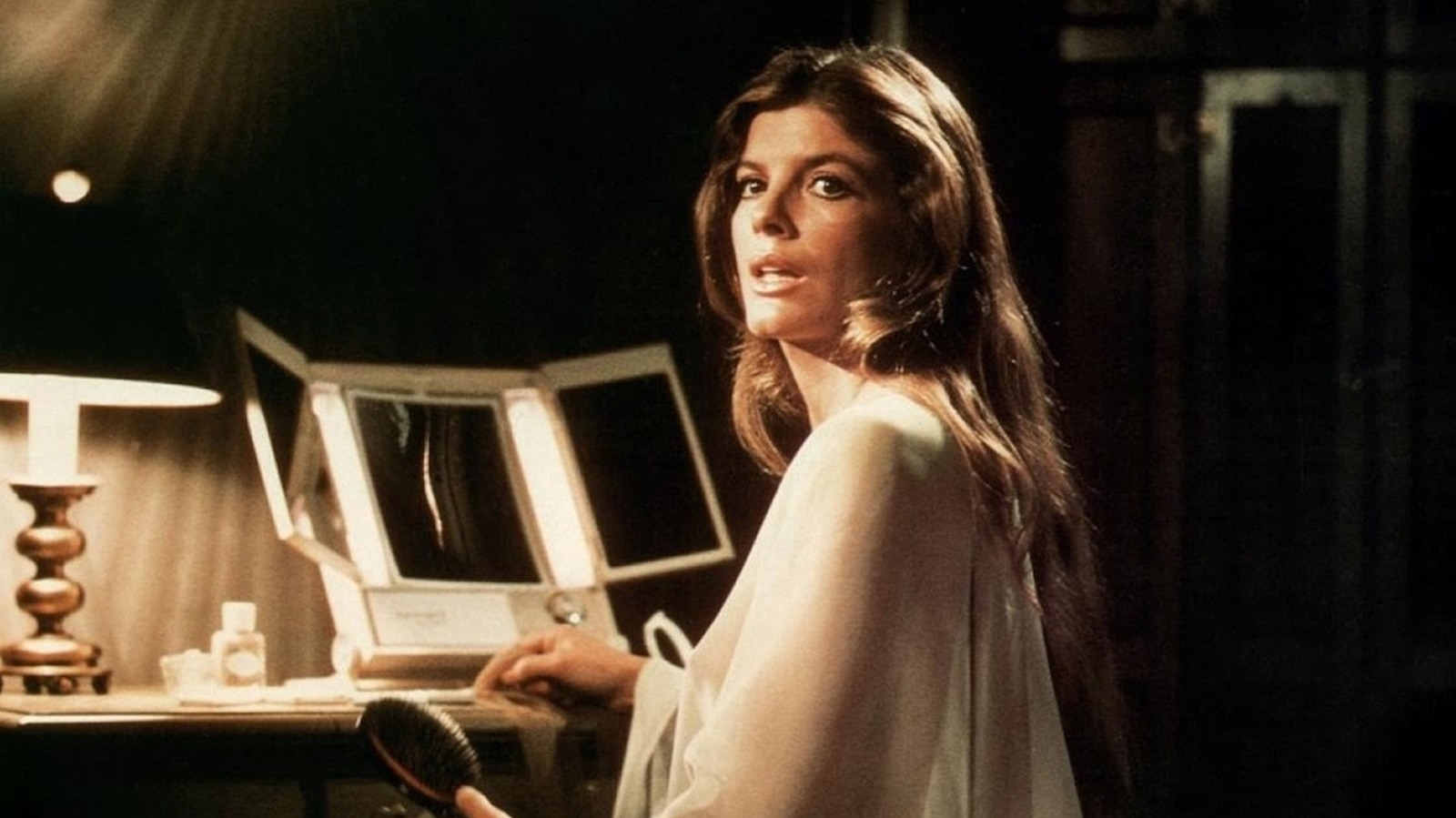
by admin | Jun 29, 2025 | TV & Beyond Articles
“Don’t Worry Darling” (which essentially duplicates the original’s premise without success or conviction).
Although Forbes’ story is more layered than it initially seems, the core critique lies in the systemic subjugation of women through patriarchal practices, where they’re reduced to non-entities who are subservient to the men they’re married to. This is taken to infuriating extremes in Forbes’ film, and when Joanna Eberhart (Katharine Ross) moves to Stepford with her husband, we get to perceive the community’s odd social behavior through the eyes of a baffled skeptic. Joanna immediately notices that the women in the community are obsessed with being picture-perfect housewives, while the men are more than happy to do the bare minimum and revel in the subservience of their wives.
The psychological horror aspect of the film intensifies towards the end, leading to a rather bleak ending. Although the story is nowhere near perfect, it connects tradwife identity politics to rampant consumerism in some interesting ways. As culturally relevant as Forbes’ film is, it is a lesser-known fact that “The Stepford Wives” spawned three (!) associated titles, forming a horror franchise that is still overshadowed by the original.
The Stepford Wives sequels are all made-for-television stories
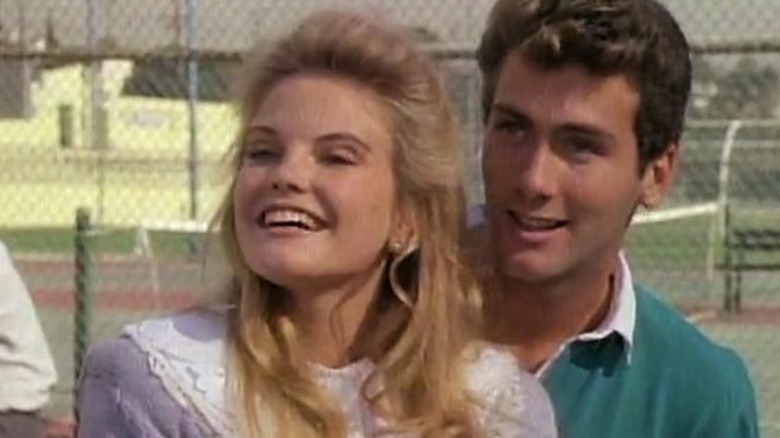
NBC
The first direct sequel in question is 1980’s “The Revenge of the Stepford Wives,” a made-for-TV horror thriller that takes place 10 years after the events of the original film. This little story examines the consequences of couples wanting to leave Stepford, prompting TV reporter Kaye Foster (Sharon Gless) to visit the seemingly idyllic community for an investigation. The immediate signs that something ominous is afoot are more overt here, as Kaye notices the women popping pills multiple times a day after a siren blares through the town speakers. As the plot progresses, Kaye establishes herself as a sharp, resourceful protagonist dedicated to the emancipation of the women trapped at Stepford, even after she learns the heinous truth. This is one of the better entries in the franchise, despite sporting an ambiguous ending that doesn’t fully explore the central trope of revenge.
Next up, we have 1986’s “The Stepford Children,” in which a couple moves to Stepford with their kids, David (Randall Batinkoff) and Mary (Tammy Lauren). David and Mary’s father, Steven (Don Murray), seems bothered by their laidback and carefree spirits and joins the nefarious Men’s Association to assimilate them into obedient, accomplished robots with little to no sense of self. The children, although unaware of this, become spooked by the attitudes of the adults around them, who seem to be obsessed with monitoring their children to help them achieve a “perfect” social image. Now, this is a decent follow-up to “Revenge,” but lacks the finesse of its predecessors, along with the conviction to tell a story that remains committed to the themes of parental abuse and its repercussions.
You might’ve already sensed a theme here, so it shouldn’t be surprising that the final entry in this series is called “The Stepford Husbands” (which opens with a man violently killing his wife before committing suicide). The story attempts to flip the original concept on its head by presenting the men at Stepford being docile to their wives, with the Stepford Institute for Human Behavior being responsible for this shift. Shabby writing and uninspired performances aside, this inverted concept in “The Stepford Husbands” falls flat due to the glaring lack of real-life mirroring, as even the strongest brand of misandry cannot compare to the horrifying consequences of violent misogyny that affect everyone in society. This is the shallowest rendition of a familiar premise, and the most creatively bankrupt out of the trio.
Although nothing can eclipse the raw impact of the 1975 originals, these follow-ups (save for the third one) are decent enough for a one-time watch.
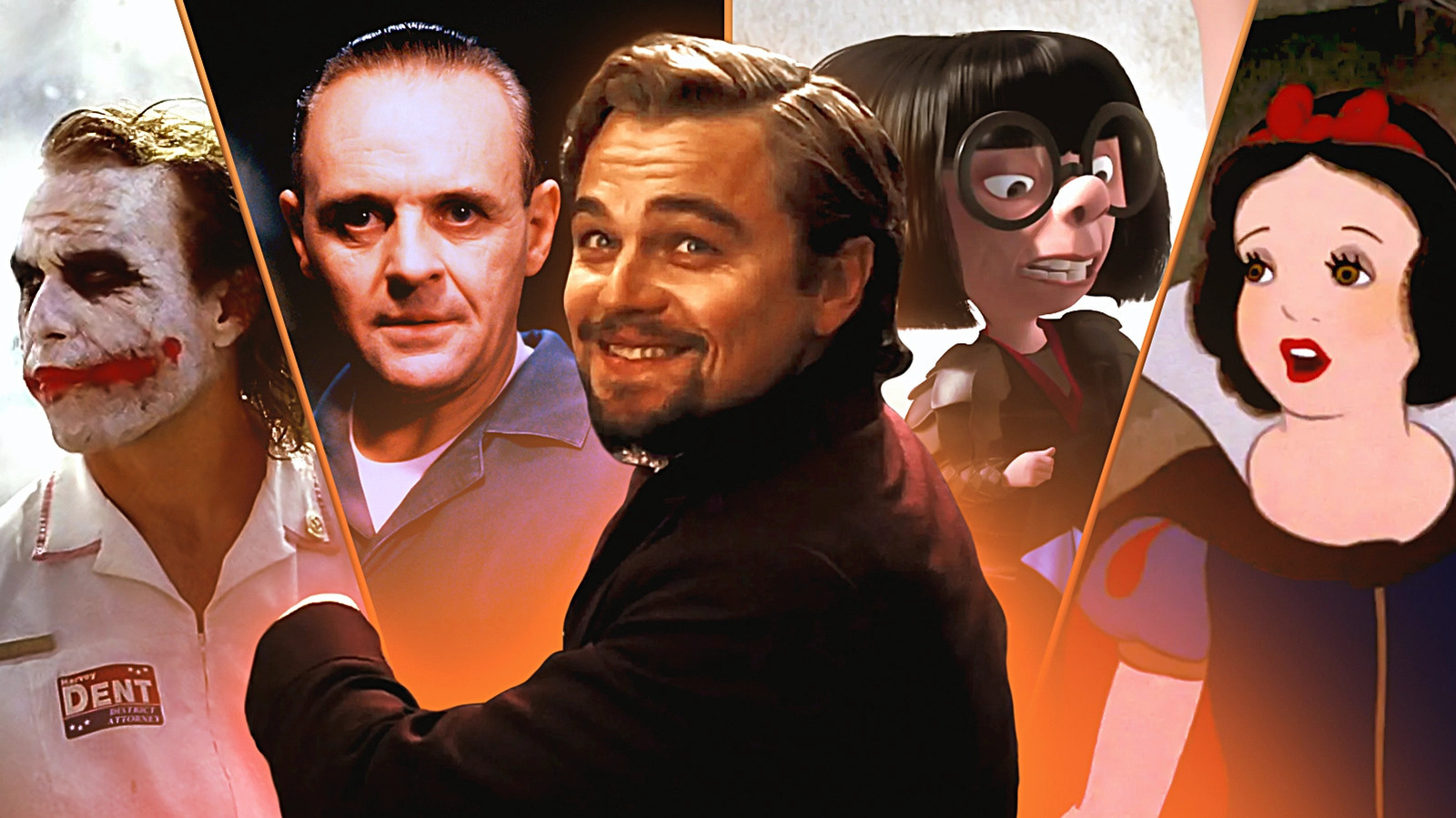
by admin | Jun 29, 2025 | TV & Beyond Articles
tracking down the exact wrestling match you can see on a television screen in “Beetlejuice” (namely, a Long Beach bout between The Whip and The Spoiler Ron Starr). There’s so much that goes into filmmaking than what you see on the screen, and it’s fascinating to dive deep into the process to see what intriguing tidbits can get uncovered.
It goes without saying that the internet has caused a bit of a misinformation issue in the modern age. That means someone can say something online, and everyone else just runs with it. These mistruths can either come from misunderstandings or someone just outright lying and no one bothering to fact-check. This has caused many so-called bits of movie trivia to populate the public consciousness that are unequivocally false, so allow us to separate fact from fiction by debunking these movie trivia “facts” that aren’t true at all.
False: A munchkin is seen hanging himself in The Wizard of Oz
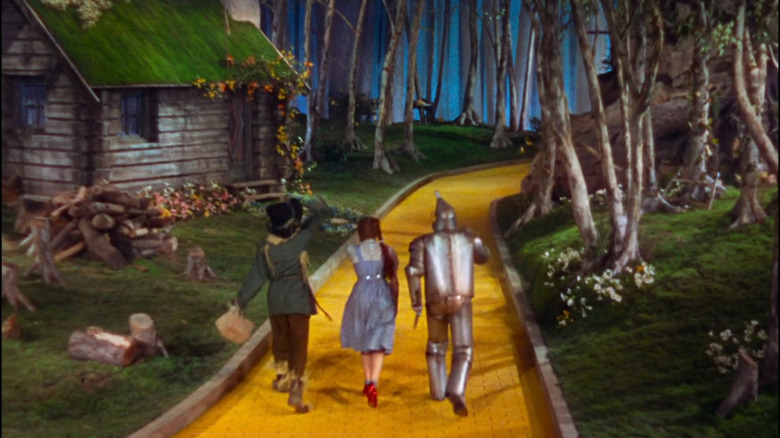
Metro-Goldwyn-Mayer
The following slide contains references to suicide.
Dark corners of the internet will tell you “The Wizard of Oz” has a scene where Dorothy (Judy Garland), the Tin Man (Jack Haley), and the Scarecrow (Ray Bolger) skip down the yellow brick road, only for a silhouette of one of the actors playing a munchkin hanging themselves in the background. It’s tough to make out in old copies of the movie, but there does seem to be something moving. Given the myriad dangers of making “The Wizard of Oz,” like asbestos being used for snow, this myth appears to add to the film’s horrors.
However, viewers aren’t accidentally witnessing a suicide in the film. That would be a step too far even for “The Wizard of Oz.” When higher-resolution versions of “The Wizard of Oz” became more readily available, the silhouette in question turns out to be nothing more than a bird, likely an emu or crane. “The Wizard of Oz” production borrowed various birds from the Los Angeles Zoo to roam around to give the film a more whimsical feeling.
If you or someone you know is struggling or in crisis, help is available. Call or text 988 or chat 988lifeline.org
False: Heath Ledger improvised his reaction to the hospital explosion in The Dark Knight
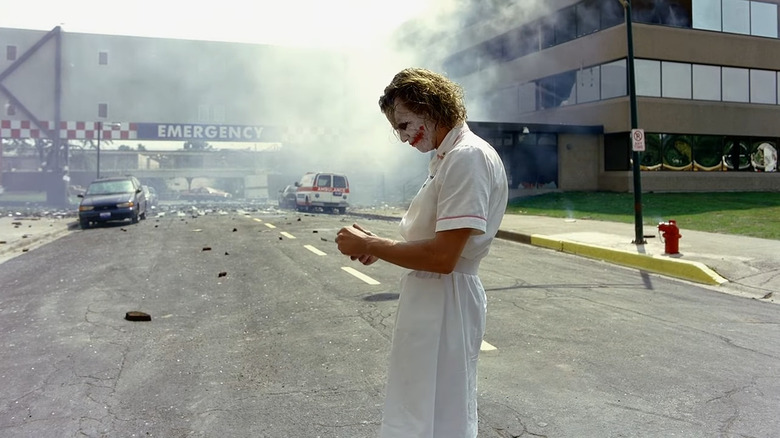
Warner Bros.
One of the most famous moments in “The Dark Knight” is where the Joker (Heath Ledger) walks out of a hospital as it explodes behind him. Then, the explosions stop, and Joker humorously fidgets around for a beat wondering what went on until the explosions resume again. A myth was formed, perhaps due to Ledger’s intense commitment to embodying the character, that the pause in explosions wasn’t supposed to happen, and Ledger simply filled the time by fidgeting around in a way Joker would.
The truth is that this was all carefully planned. It needed to be because director Christopher Nolan and crew actually blew up a building for the shot, so they only had one chance to get it right. “The Dark Knight” Blu-ray release has the “Gotham Uncovered: Creation of a Scene” featurette where Nolan explains that they meticulously added a pause to give Ledger enough time to safely walk away from the building and get onto the bus in time. It’s all one take, so they needed to bide some time, adding the moment where Joker acts surprised the explosives didn’t go off like he planned. The Joker may not have a plan, but it’s a good thing Nolan did to keep his performers safe.
False: All the clocks are set to 4:20 in Pulp Fiction
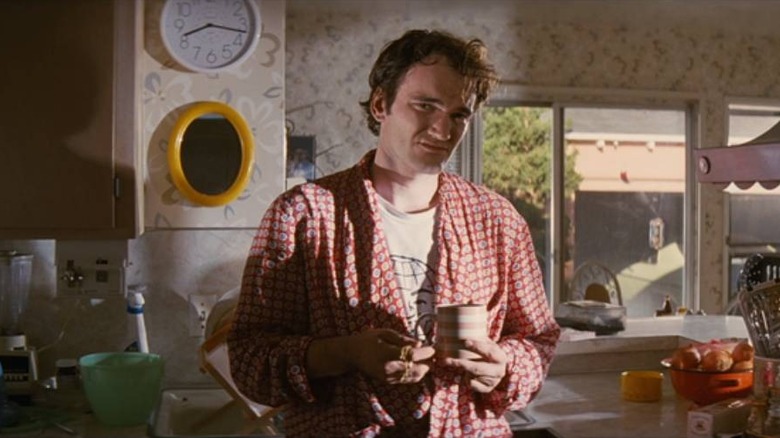
Miramax Films
“Pulp Fiction” posters continue to populate college dorm rooms. Perhaps one day, when some college students were engaging in some herbal extracurricular activities, one casually mentioned that all the clocks in “Pulp Fiction” are set to 4:20, the official unofficial time to smoke weed and get high. From there, an internet rumor was born, which is kind of weird because you can blatantly see in the above image that at least one clock isn’t set to 4:20.
That’s not the only one, as there are several scenes featuring clocks and watches that aren’t set to that specific time. Best we can tell, two clocks are set to 4:20 throughout the film, but there are plenty of others that aren’t. Someone may have noticed those two and exaggerated the prevalence to make the trivia funnier, but alas, Quentin Tarantino didn’t provide sly Easter eggs for all the stoners out there. Maybe if “Pulp Fiction 2” ever gets made, they can make good on this rumor.
False: Leonardo DiCaprio smeared real blood on Kerry Washington’s face in Django Unchained
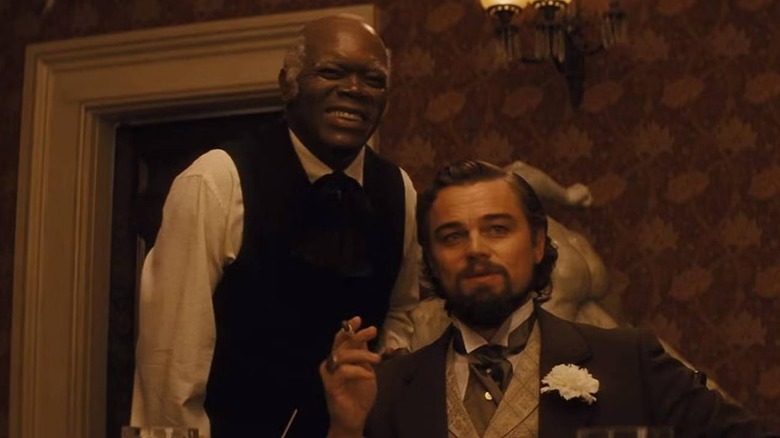
The Weinstein Company
“Django Unchained” has an infamous scene where Calvin Candie (Leonardo DiCaprio) smashes his hand against glass, causing it to bleed. It is, in fact, true that DiCaprio sliced his hand while filming, and you can see that cut in the film. However, some sites take this trivia too far and state that the actor proceeded to wipe his actual blood on co-star Kerry Washington as he continues monologuing.
Washington explained on “The Drew Barrymore Show” that while some of DiCaprio’s actual blood is in the movie, anything on her face is fake. “Quentin [Tarantino] wasn’t sure if he wanted to use the take with the blood or not, so every moment after that moment in the movie we shot twice,” she explained. “We’d shoot completely bloody with him touching my face — with fake blood — and then we’d have to take everything off and shoot it again totally clean.” We’re not sure how this became a myth because, obviously, an actor wouldn’t be allowed to smear their real blood over someone else purely for sanitary reasons.
False: An extra improvised chucking a beer can at John Malkovich in Being John Malkovich
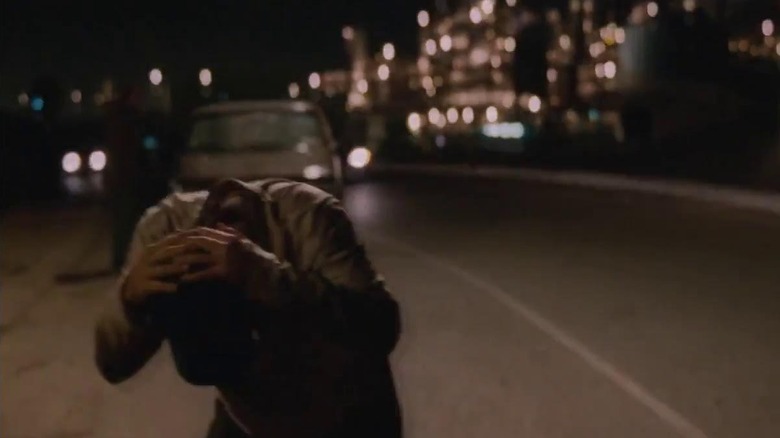
USA Films
Pro tip: If you ever hear a piece of movie trivia about someone improvising something that winds up in the final cut, take it with a grain of salt. “Being John Malkovich” is a wonderfully surrealist comedy that was born out of Charlie Kaufman smashing two scripts together, and a persistent rumor is that the scene with a person throwing a beer can at John Malkovich wasn’t supposed to happen. According to legend, the extras got drunk that night, and one thought it would be funny to chuck something at Malkovich out of a car window.
It’s reasonable people would assume this. The rumor was born out of the movie’s fake director’s commentary track, but in reality, it was in the script for someone to throw the can at the actor. Malkovich explained in a 2013 Reddit AMA that director Spike Jonze wanted to cut the scene because “he felt no one would be able to hit me on the head with a half full can of beer from a passing car.” John Cusack’s writing partner is the one who took the shot, and amazingly, he got it on the first take. The true story’s more impressive than the rumor.
False: They used milk as the rain in Singin’ in the Rain
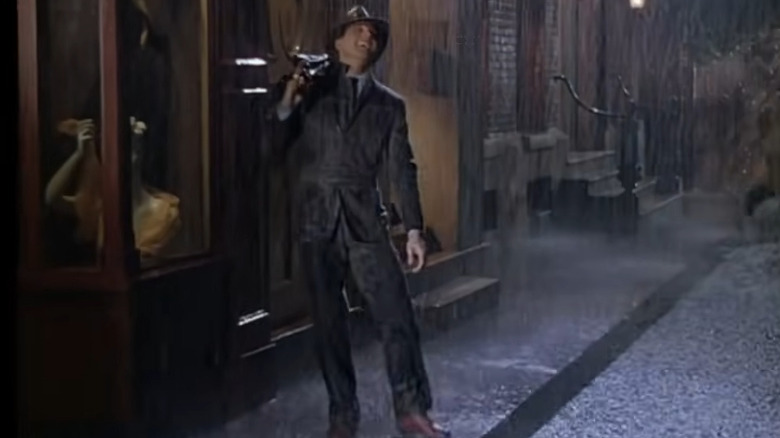
Metro-Goldwyn-Mayer
This myth should’ve been debunked right away. For years, people have stated that the rain in 1952’s “Singin’ in the Rain” is actually milk because water wouldn’t have shown up well on film. However, Gene Kelly didn’t dance in milk because that would’ve been gross. It also would’ve been unnecessary because there was a far more effective and innovative solution to ensure audiences could see the rainfall around him.
Water refracts light, so any light sources in front of the rainfall wouldn’t have allowed it to show up on camera. That’s probably where the milk myth originated because cinephiles knew there had to be some other solution for making the rain be visible. Instead, the crew backlit the rain, putting light sources behind it instead of in front of, so that audiences everywhere could enjoy one of the most magical movie musical numbers of all time.
False: Anthony Hopkins never blinks in The Silence of the Lambs
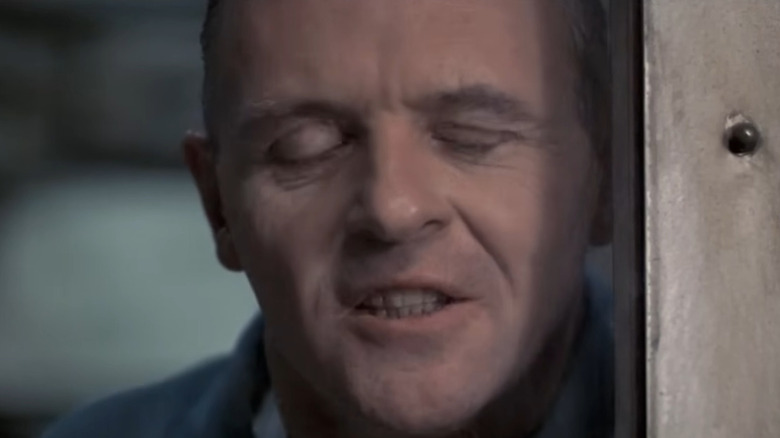
Orion Pictures
Anthony Hopkins delivers a chilling performance as Hannibal Lecter in “The Silence of the Lambs.” Despite the character’s depraved acts, he remains incredibly calm and still throughout most of the time he’s on screen, which might be how the myth of him never blinking materialized. But he absolutely blinks in the film. He blinks a bunch actually.
Hopkins definitely doesn’t blink a ton. He appears to exert a more controlled blinking where he’s more inclined to stare straight ahead at Clarice Starling (Jodie Foster). Additionally, the conversations between Hannibal and Clarice are edited in such a way that the two are rarely in the same frame together. It usually cuts back and forth between the two, meaning if you’re not really paying attention, you may not see it when Hannibal blinks. In fact, he blinks pretty noticeably after saying, “I ate his liver with some fava beans and a nice chianti,” the most famous line in the film.
False: Snow White is the first feature-length animated film
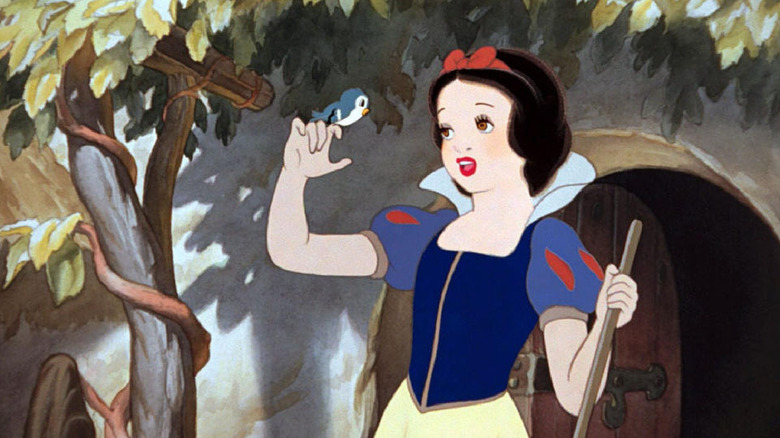
Walt Disney Productions
If you ask most people what the first feature-length animated film was, there’s a good chance they’ll tell you: “Snow White and the Seven Dwarfs,” which came out in 1937. That’s not technically true, even if we are splitting hairs a bit. “Snow White and the Seven Dwarfs” is the first feature-length cel-animated movie, but there were several other films preceding it.
It’s believed Argentinian animator Quirino Cristiani had made some animated features, but they’ve since been lost to time. However, we still have 1926’s “The Adventures of Prince Achmed” from German director Lotte Reiniger you can watch on YouTube in its entirety. It remains one of the most beautiful animated films of all time, utilizing a form of silhouette animation, creating shadows using cardboard and lead sheets. So the next time someone tries to give “Snow White” this claim to fame, make sure the term “cel-animated” is in the title.
False: Blazing Saddles has the first audible cinematic fart
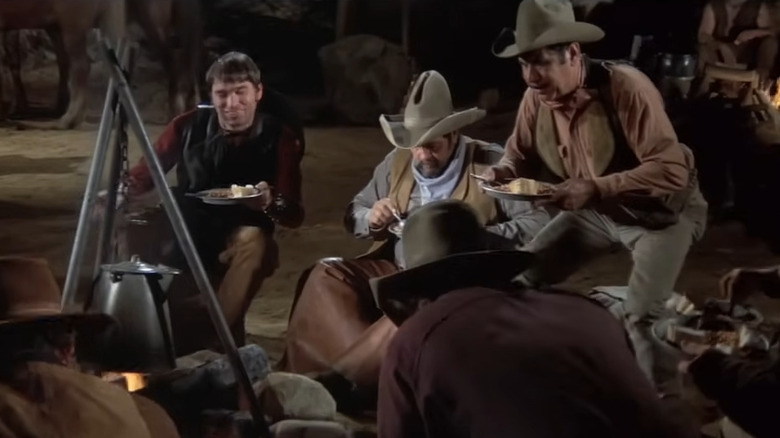
Warner Bros.
Again, this might be a case of splitting hairs. The fart sequence in 1974’s “Blazing Saddles” changed the comedy game, with director Mel Brooks pinpointing 12 farts to be the perfect number before the audience would stop finding them funny. The film typically gets credited for having cinema’s first fart joke with a scene depicting cowboys eating beans and letting it rip. It might have the first fart joke in an American movie, but Japan was ahead of the curve on this one.
Yasujirō Ozu’s 1959 film, “Good Morning,” is packed with fart jokes. Flatulence is of the utmost importance in this story about young boys coming of age, and that includes them discovering how joyous farts can be. There’s even one scene where a group of boys engage in a allied, only for one to actually defecate in his pants. It’s a technicality, but credit where credit’s due in that fart jokes transcend cultural barriers.
False: A stunt man was killed during the chariot racing scene in Ben-Hur
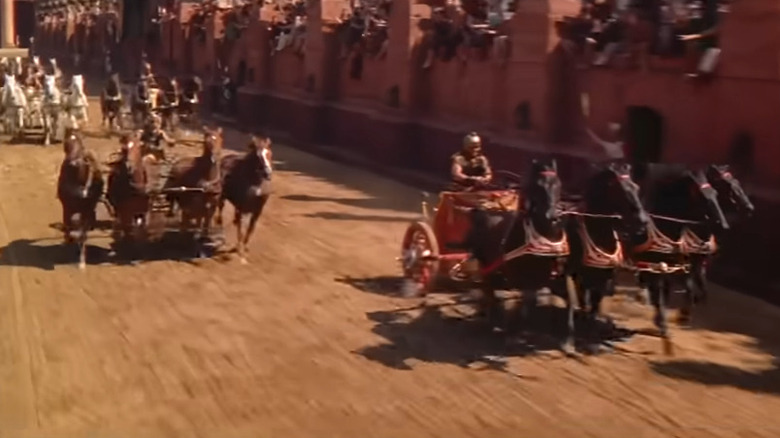
Loew’s Inc.
One trivia tidbit that continues to plague 1959’s “Ben-Hur” is that a stunt performer was killed during the chariot race sequence. Reportedly, the death can be found in the movie, which has surely led to countless people trying to pause at just the right moment to watch this religious epic turn into a snuff film. However, there’s zero proof a death occurred, and the only reported injury of that sequence came when Charlton Heston’s stunt double, Joe Canutt, got cut on the chin, requiring four stitches.
It’s possible this rumor got entangled with the 1925 version of “Ben-Hur,” which was nothing short of a disaster. During production of the 1920s film, a wheel fell off a chariot, causing a stunt performer to fall on lumber and die. The film was also a nightmare for the horses, with reports suggesting as many as 100 horses were put down due to injuries. The general public may have conflated the two “Ben-Hurs,” but it does seem like things got safer in Hollywood between making the two movies.
False: CGI was used to reduce Brandon Routh’s bulge in Superman Returns
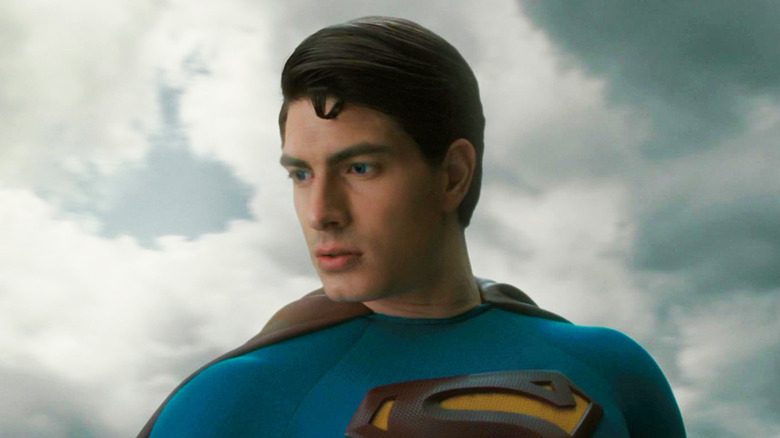
Warner Bros.
Superhero outfits tend to be very form-fitting. It’s necessary for actors to show off all their muscles (or fake muscles as the case may be). But according to one rumor, Brandon Routh’s Man of Steel outfit in “Superman Returns” may have been a bit too snug. Rumors circulated around the film’s release that Warner Bros. needed digital effects artists to reduce Routh’s, um, package so that it wasn’t as prominently displayed through the tight costume.
It is funny to think there may have been multiple Superman actors who needed body parts CGI’d away, considering Henry Cavill’s infamous mustache erasure for 2017’s “Justice League.” However, no CGI was needed for Routh. Costume designers on the film later clarified they were aware of the actor’s well-endowed status and used a codpiece and extra padding so that it wouldn’t show through as much. So in this case, the rumor is how they hid Routh’s package rather than the size of the package itself, so… congratulations, Brandon Routh!
False: James Cameron didn’t cast OJ Simpson as the Terminator because he wasn’t believable as a killer
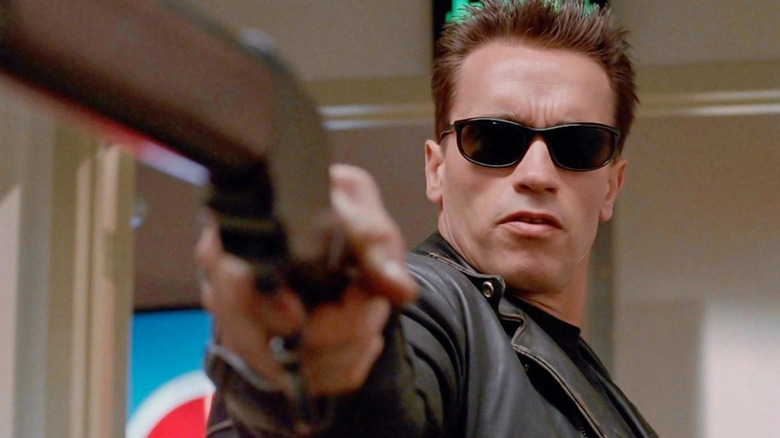
Orion Pictures
Arnold Schwarzenegger as the titular killing machine in “The Terminator” is pitch-perfect casting, but if the internet is to be believed, O.J. Simpson almost had the part. Not only that, but rumors suggest director James Cameron shot down the casting idea because he couldn’t envision Simpson as a killer. Given Simpson’s 1995 trial for the murder of Nicole Brown Simpson and Ron Goldman, this trivia always had the air of an extremely ironic anecdote. Too bad none of it’s true.
Cameron has gone on the record to deny Simpson was ever in serious contention for the role of the Terminator. Schwarzenegger himself has relayed the story before, seemingly lending credence to it. But it’s not like he would’ve been privy to those early conversations. While Simpson’s name was thrown out during a meeting Cameron had with an executive, he was never in serious consideration. And the football star certainly wasn’t passed over for being too nice-seeming.
False: Edna Mode in The Incredibles is based off Edith Head
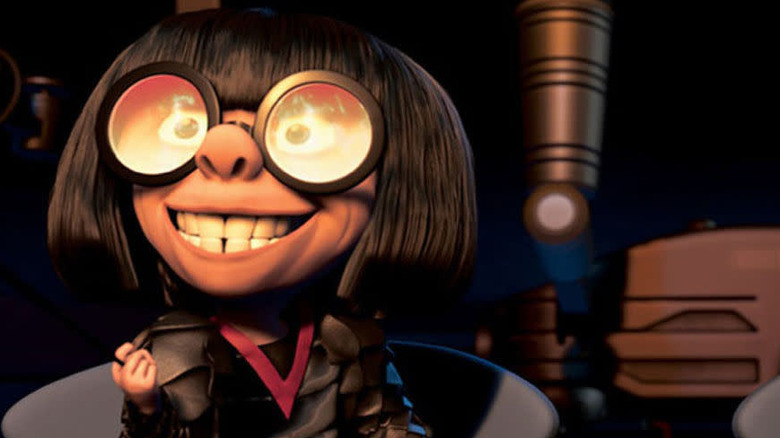
Walt Disney Studios Motion Pictures
Edna Mode (voiced by Brad Bird) is the iconic costume designer in “The Incredibles” who’s certainly deserving of a spinoff in her own right. Many online seem convinced the character is based off real-life costume designer Edith Head, who won eight Oscars for her work. The two even sport similar hairstyles and glasses, so without digging any deeper into this belief, it would appear to check out.
However, the director and voice actor for Edna Mode, Brad Bird, shot this myth down personally. In 2013, he took to X (formerly Twitter) to answer whether Edna Mode is based on Edith Head: “No. People from MANY countries (27 & counting) were convinced I based E on a local icon.” If one researches famous fashion icons around the world, there definitely does seem to be a trend of women with dark black bobs and glasses popping up. There’s a good chance the animators made Edna Mode an amalgamation of all these people and came out with a true legend by the end.
False: The kids in The Goonies didn’t see the pirate ship before filming
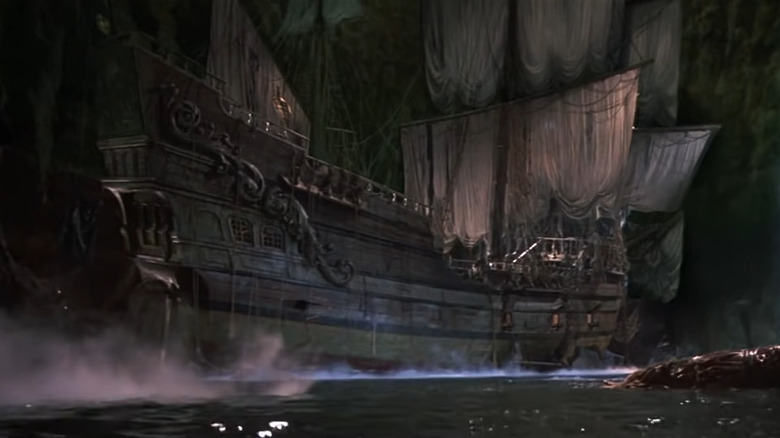
Warner Bros.
A full-scale pirate ship was built for “The Goonies,” and the kids’ reactions seem so genuine that a myth materialized that they weren’t allowed to see the ship ahead of time. It’s a fun myth but one that requires a bit of nuance.
During a 2025 “Goonies” panel at Awesome Con (via Geek Tyrant), Sean Astin said he saw the ship ahead of time and jokingly mentioned, “I was sort of offended that [people] had that idea, that they wouldn’t let the kids see the pirate ship, so that they could capture their real reaction. Like, what? We don’t know how to do real?” Corey Feldman also admitted to sneaking a glimpse of the ship ahead of time. Plus, Josh Brolin reportedly dropped an F-bomb upon seeing the ship, so no matter what, they had to film that part over again.
It seems the intention was to make the ship a surprise, even if it didn’t work out that way because kids are going to be kids. However, Martha Plimpton was apparently the only one who followed the rules and hadn’t seen the ship before, so her reaction is the only one that’s actually genuine.
False: Brad Pitt was only paid a cup of coffee for his cameo in Deadpool 2
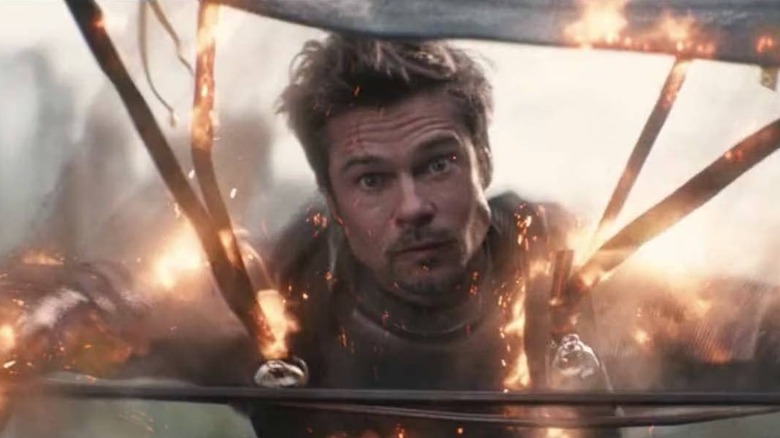
20th Century Fox
Hands-down, one of the funniest bits in “Deadpool 2” is when the invisible Vanisher gets electrocuted while parachuting, and during his brief death, it’s revealed that Vanisher is being played by none other than Brad Pitt. It’s a hilarious couple of seconds that thoroughly confused the studio with an A-list star barely appearing in this big superhero blockbuster. After the fact, legend had it that Pitt agreed to film the few seconds if Ryan Reynolds personally delivered him a cup of coffee. Hopefully, it was a good cup of joe, but this factoid ignores the fact that Pitt absolutely got paid actual money for the part.
Pitt probably commands millions of dollars per role, but for “Deadpool 2,” he agreed to do it for scale, meaning he made around $956 as well as some coffee he probably could’ve just gotten from the craft services table. But the cameo may have meant more to Pitt than coffee and a few bucks, as it allowed the actor to reunite with director David Leitch, who was Pitt’s stunt double in “Fight Club.”
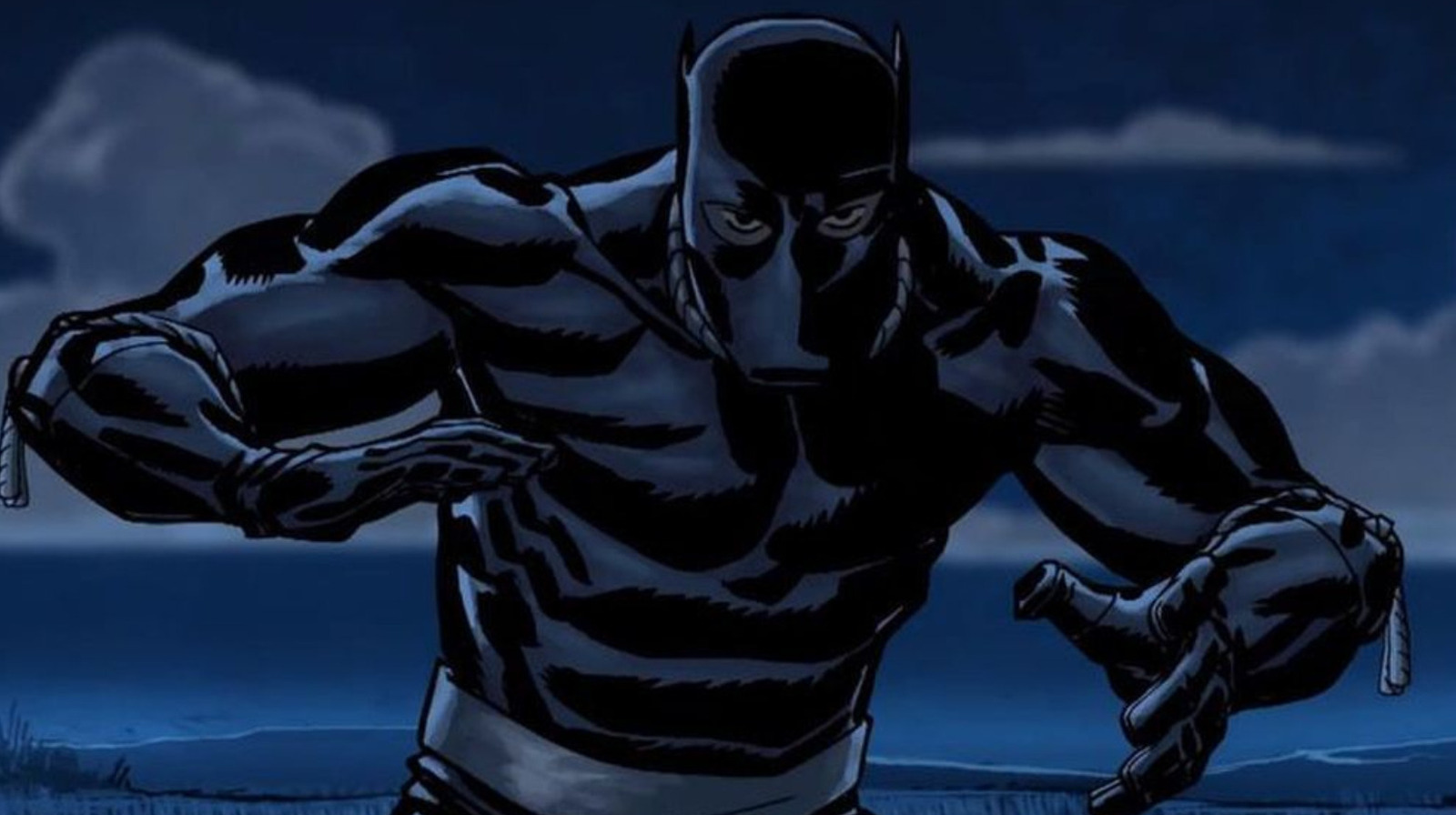
by admin | Jun 29, 2025 | TV & Beyond Articles
Djimon Hounsou, who popped up in Guardians of the Galaxy and then played other versions of the villainous Korath the Pursuer in different projects. But the fan-favorite actor actually played Black Panther in a very unique way for Marvel, and viewers might have missed it on the first time around.
Hounsou voiced the Marvel hero in a six-episode “Black Panther” TV series that the company released in 2010 as a part of the Marvel Knights Animation imprint, which means the show rests comfortably outside of the MCU continuity. (This comes with a sigh of relief from some readers who might be worried that they missed something inside of the sprawling mythos that Marvel is poised to keep adding to until the assumed heat death of the universe or otherwise!) BET produced the “Black Panther” TV series, and the effort represented their first animated TV project since “Hey Monie!” all the way back in 2003, so this was new territory for everyone involved.
It’s important to note that “Black Panther” exists as something called a “motion comic” as opposed to other animated Marvel efforts like “X-Men: The Animated Series” or something like that, and this could have been a lot of fans’ first introduction to the T’Challa years before Chadwick Boseman would make the Avenger a household name later in the decade. Each episode of “Black Panther” is 20 minutes long, and there are only six episodes available, but it’s a fun, quick run-through of the current Black Panther mythos that has some fun stuff for longtime Marvel fans. Djimon Hounsou is not alone in “Black Panther” either, as Kerry Washington, Alfre Woodard, Jill Scott, and more are all there in the voice cast as well. The fact that more people don’t talk about this little show is really surprising.
Djimon Hounsou voiced Black Panther in a mostly forgotten Marvel animated series
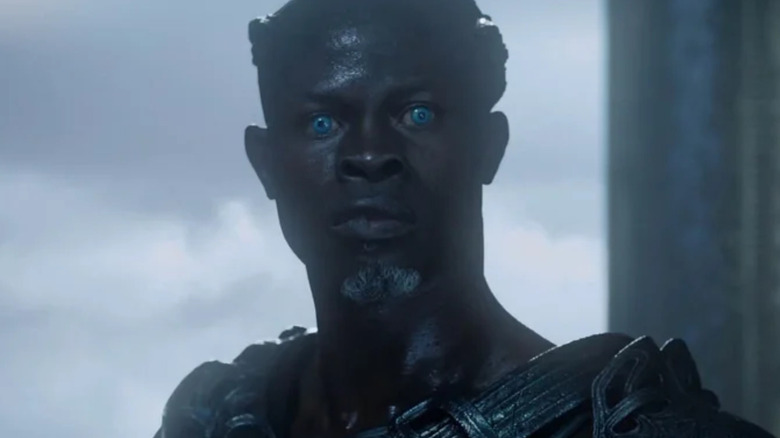
Marvel Studios
James Gunn dialed up Djimon Hounsou to play the MCU’s version of Korath the Pursuer in “Guardians of the Galaxy,” which makes sense as the Kree are introduced in that movie as a major player in the cosmic side of the Marvel Universe during that film. In a fun moment for longtime fans, Hounsou actually reprises the role of Korath in “Captain Marvel” as a member of Starforce. Along with Yon-Rogg, Captain Marvel, and their squad, the strike team was tasked with fighting Skrulls in the ongoing war between the Kree and the Skrulls. Throughout the film, Hounsou’s character comes into conflict with Captain Marvel and is defeated.
“Black Panther” is a different ballgame altogether as Hounsou was number one on the call sheet, and the first person to play the massively popular Marvel hero on television, which is going to make one heck of a “Jeopardy!” question one day! (Bonus points for anyone who gets the trivia question of Kerry Washington playing Shuri in “Black Panther” correct at your local geek trivia night as well.) It’s just funny to see an actor who has logged the kind of career that Hounsou has get this chance, and then watching Wakanda fever grip the United States, and then the world, just six years later. He actually would have had the chance to play Black Panther in “Fantastic Four: Rise of the Silver Surfer” if a couple of things had broken differently, and that’s a wild concept to process.
Still, folks who really want to see “Black Panther” can stream the animated series on BET’s YouTube channel, and that’s getting to be a rarity in this day and age as more things become locked into a given streaming service. The “Black Panther” series is nice shorthand for viewers who might not want to sit through the live-action movie, although we’d highly recommend that, as Chadwick Boseman really is now the face of this character in every major way.
Black Panther has become a major staple in Marvel fandoms and this show was a big step towards that
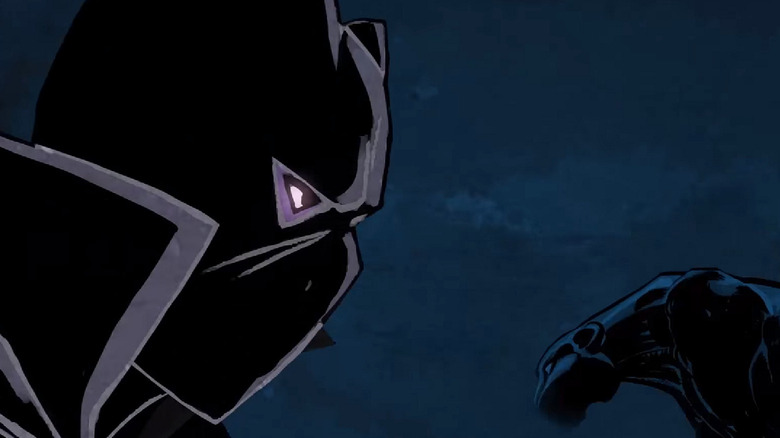
YouTube/BET
Multiple Black creators have tried to get Black Panther to the big screen before Ryan Coogler’s watershed moment with T’Challa in 2018, and make no mistake, that phenomenon still hasn’t been equaled to this day. But, one thing that probably hampered a lot of the momentum toward getting Wakanda to the movies was probably awareness of the hero’s importance, well that and interference from former Marvel bigwig Ike Perlmutter, whose obsession with what he thought would sell as a toy product helped dictate far too much of Marvel Studios’ direction in the early days of the franchise.
Once people became aware of how cool T’Challa was as a character, and let’s be real, the fantastic performance of Boseman in that MCU feature, the skies were the limit for the Wakandan characters and their increasingly popular corner of the Marvel movies. Still, seeing a proof of concept can help grease the skids to make this whole thing a reality, and there’s no question that Hounsou’s vocal performance and series helped pave more of the way for a bigger presence down the line. Change doesn’t happen at nearly the pace we’d all like sometimes, and people need to see what’s possible before going and making it a reality in most cases. After all, sometimes a familiar face or voice makes all the difference when you’re on the fence.
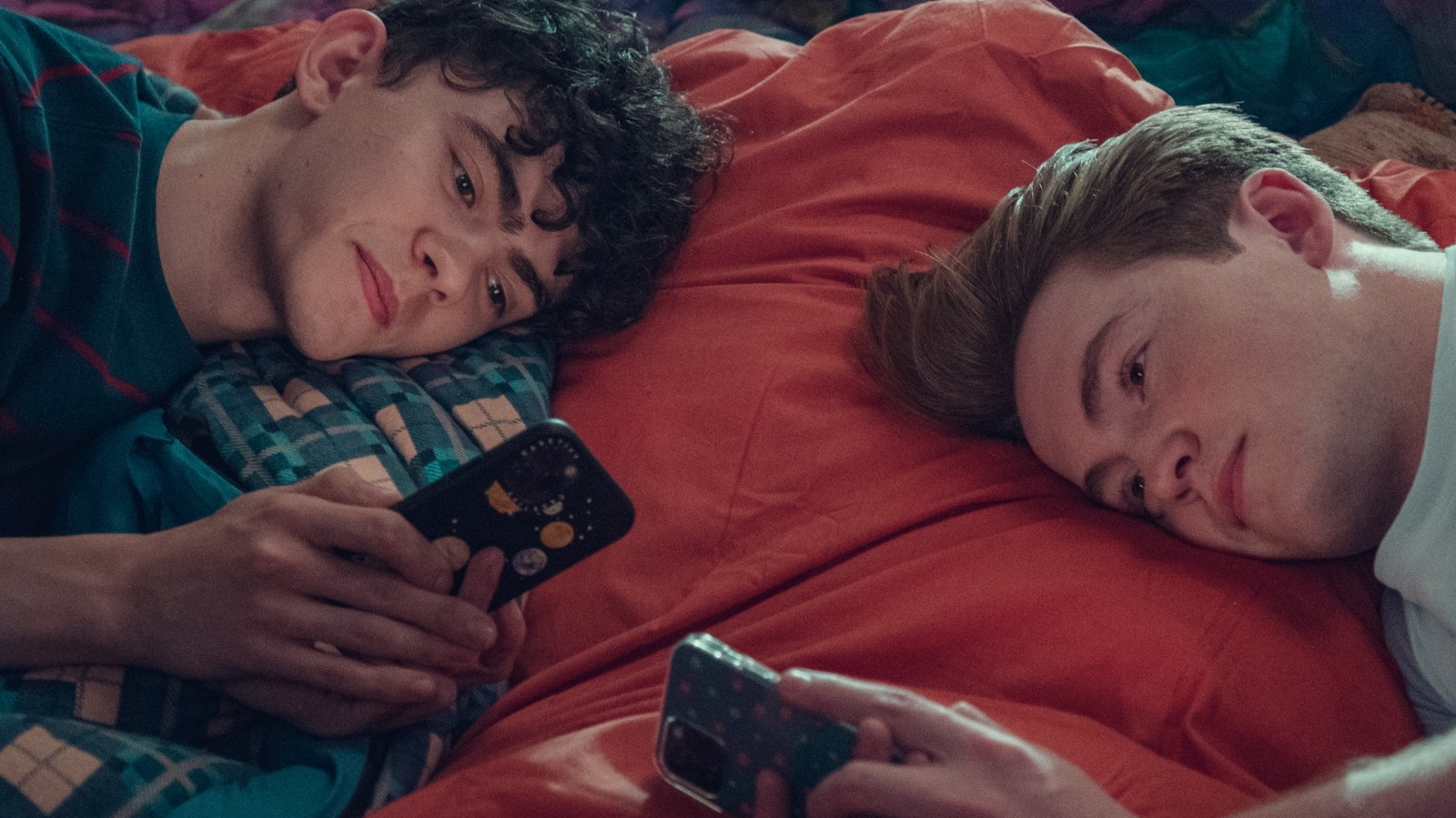
by admin | Jun 29, 2025 | TV & Beyond Articles
to Variety. Fans of the series, which follows a group of mostly queer high school students experiencing the dizzy highs and angsty lows of first love, are hyped for more “Heartstopper” — even if the show isn’t actually getting a fourth season.
The romantic drama gained critical praise and a strong following from the moment it premiered on Netflix in 2022, in part due to the built-in fan base of the “Heartstopper” webcomics and graphic novels. With series author Alice Oseman on board the TV adaptation (the writer executive produced the show and penned every episode) and tender lead performances from young stars Joe Locke and Kit Connor, “Heartstopper” seemed to steal the whole world’s heart. Hell, the show even won two GLAAD awards for its wholesome portrayal of blossoming teen love. So why didn’t “Heartstopper” get renewed for a full fourth season? It’s not exactly clear, but we do know that the movie avenue wasn’t the original plan.
The official “Heartstopper” movie announcement was quickly followed by a Tudum interview with Oseman in which they expressed a whole lot of excitement for the film — and a dash of surprise, too. “I totally understand if fans are a little apprehensive,” Oseman admitted in response to a question about the upcoming adjustment. “It’s a big change from what we know. It’s something totally new and unknown, and yes, the runtime will be less than a TV season.” She continued: “Even I needed some time to process and come to terms with the change. But once I began to see the entire vision, I knew it would be something even more beautiful than a regular season could achieve.”
Fear not, there’s a Heartstopper movie on the way
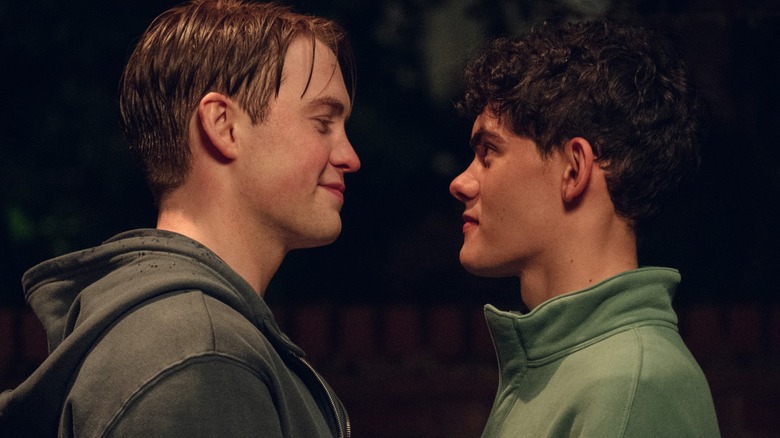
Samuel Dore/Netflix
It’s always tough to see through the PR filter of an interview that’s conducted by a company’s in-house press, but it’s obvious from Oseman’s comments that they at some point expected the show to continue on in a serialized format. Instead, Oseman will now write the film, with “Still Alice” filmmaker Wash Westmoreland directing. This isn’t an entirely unprecedented change-up; when they don’t axe them completely, streamers like Netflix have occasionally made a practice of ending fan-favorite shows with an abbreviated batch of episodes or a movie rather than a full-length final season. The streamer employed the tactic with the Wachowski sisters’ ambitious sci-fi project “Sense8,” and has essentially turned “Stranger Things” into a series of increasingly long, expensive movies throughout its five seasons.
While some shows are given feature film endings to create extra must-see-TV hype, in the 21st century, the finale movie has so far more often signified that a show isn’t pulling in the audience numbers execs think it needs to in order to justify its existence. At the same time, the powers-that-be likely still don’t want to sour creative relationships or tick off passionate fandoms by cutting a story short. In the past, cult favorite shows like “Veronica Mars,” “Deadwood,” and “Firefly” have all earned endcap films thanks almost entirely to the fervor of fans. While it’s unclear whether any of these reasons contributed to the “Heartstopper” switch-up, it’s worth noting that Oseman similarly credits the people who have cheered the show on for getting it this far. “The excitement and joy from ‘Heartstopper’ fans is such a huge part of why we are still able to tell this story, years later,” they told Tudum.
The longer, unbroken format might be a shock to the system compared to the previously bite-sized treat of a show, but Oseman and the series’ cast and crew (including Locke and Connor, now with executive producer credits) plan to pull out all the stops. The film’s plot will pull from the sixth volume of Oseman’s comics, which is partially available online, but the author notes that we should expect “some tweaks” and surprises from the original story. “We are feeling very ambitious about what is possible in a movie format,” Oseman says, promising a story of love and growth that’s “memorable, sophisticated, and atmospheric.”
The “Heartstopper” finale film does not yet have a release date, but Variety reports that filming will begin in summer 2025.







































